Politics
India’s Hindu group leader calls for three-child policy amid falling fertility rates
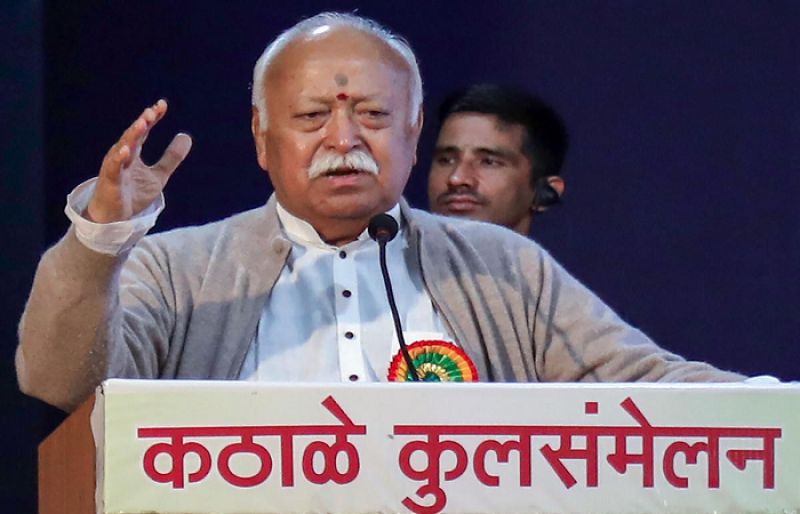
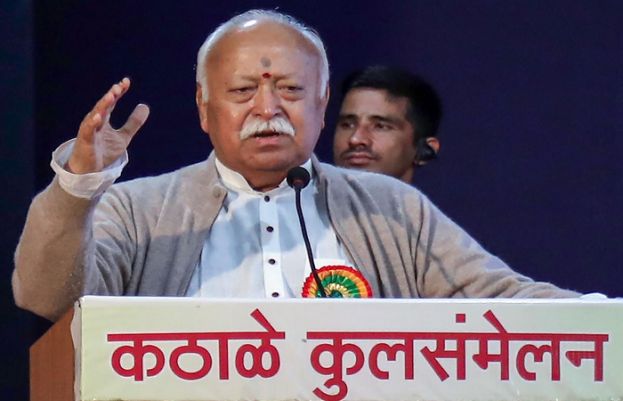
The chief of India’s Hindu nationalist Rashtriya Swayamsevak Sangh (RSS), Mohan Bhagwat, has urged Indian families to have three children each, warning of long-term risks linked to the country’s declining birth rates.
Despite being the world’s most populous nation with 1.46 billion people, India’s fertility rate has dropped below two children per woman, according to the UN Population Fund’s 2025 report, as the economy continues to grow.
Bhagwat, whose organization is the ideological parent of Prime Minister Narendra Modi’s Bharatiya Janata Party, said the population must remain “controlled, yet sufficient.”
Speaking during a lecture marking the 100th anniversary of the RSS, he stressed that “in the national interest, every family should have three children and restrict themselves to that.”
His remarks highlight growing concern among nationalist leaders and some regional politicians over long-term demographic stability, economic capacity, and cultural identity.
Hardline Hindu groups have long raised alarms about higher birth rates among minority communities, particularly Muslims, though data shows that Muslim families in India are also having fewer children than in previous decades.
Bhagwat too said birth rates were declining across religious groups.
While the RSS officially describes itself as a cultural organisation promoting Hindu values, it wields enormous influence through its vast network of affiliates and millions of grassroots volunteers.
Many of Modi’s senior ministers, including the prime minister himself, are long-time members of the RSS.
Analysts say BJP’s policy priorities from cultural and education reform to citizenship laws frequently echo positions championed by the RSS, making the organisation one of the most powerful civil society groups in the world.
Bhagwat rejected criticism that the RSS was opposed to Muslims who make up about 14% of India’s population and other minorities saying the organisation viewed all of them as Indians.
“Our ancestors and culture are the same. Worship practices may differ, but our identity is one.
Changing religion does not change one’s community,” he said.
“Mutual trust must be built on all sides. Muslims must overcome the fear that joining hands with others will erase their religion.”
Politics
Indian man kills wife, takes selfie with dead body
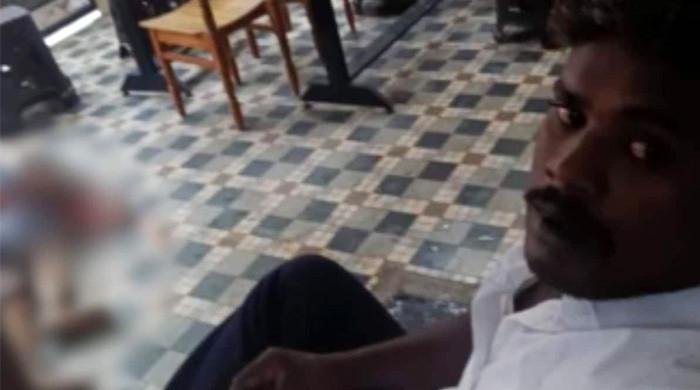

A man in India’s south brutally killed his estranged wife at a women’s hostel and took a selfie with her dead body, according to NDTV.
The victim, identified as Sripriya, employed at a private firm in Coimbatore, Tamil Nadu, had separated from her husband, Balamurugam, who was from Tirunelveli.
Police said the suspect arrived at the hostel on Sunday afternoon, concealing a sickle in his clothes, and was seeking to meet her.
They had an argument soon after the couple met, and the feud turned into a violent attack by Balamurugan, who drew the sickle and hacked the woman to death.
Furthermore, the police said he then took a selfie with her body and shared it on his WhatsApp status, accusing her of “betrayal”.
The incident spread panic and chaos in the hostel.
Following the brutal murder, the suspect did not escape from the spot but waited until the police arrived, and he was arrested at the crime scene. The murder weapon was recovered.
The initial investigation suggested that he suspected his wife of being in a relationship with another man.
Politics
Southeast Asia storm deaths near 700 as scale of disaster revealed


- Indonesia, Malaysia and Thailand witness large scale devastation.
- At least 176 people perish in Thailand and three in Malaysia.
- Indonesia’s death toll reaches 502 with 508 more still missing.
PALEMBAYAN: Rescue teams in western Indonesia were battling on Monday to clear roads cut off by cyclone-induced landslides and floods, as improved weather revealed more of the scale of a disaster that has killed close to 700 people in Southeast Asia.
Indonesia, Malaysia and Thailand have seen large scale devastation after a rare tropical storm formed in the Malacca Strait, fuelling torrential rains and wind gusts for a week that hampered efforts to reach people stranded by mudslides and high floodwaters.
At least 176 have been killed in Thailand and three in Malaysia, while the death toll climbed to 502 in Indonesia on Monday with 508 missing, according to official figures.
Under sunshine and clear blue skies in the town of Palembayan in Indonesia’s West Sumatra, hundreds of people were clearing mud, trees and wreckage from roads as some residents tried to salvage valuable items like documents and motorcycles from their damaged homes.
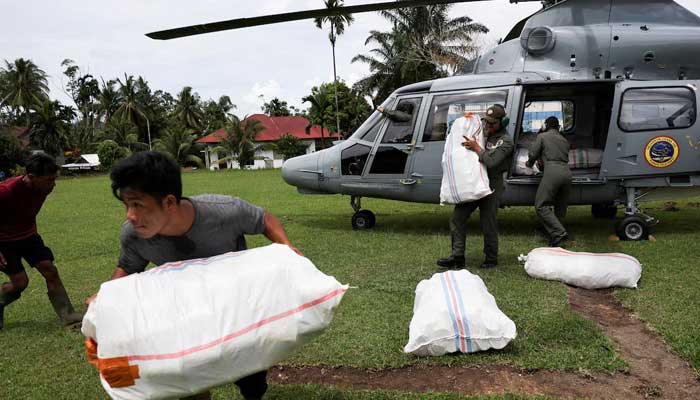
Men in camouflage outfits sifted through piles of mangled poles, concrete and sheet metal roofing as pickup trucks packed with people drove around looking for missing family members and handing out water to people, some trudging through knee-deep mud.
Months of adverse, deadly weather
The government’s recovery efforts include restoring roads, bridges and telecommunication services.
More than 28,000 homes have been damaged in Indonesia and 1.4 million people affected, according to the disaster agency.
Indonesian President Prabowo Subianto visited the three affected provinces on Monday and praised residents for their spirit in the face of what he called a catastrophe.
“There are roads that are still cut off, but we’re doing everything we can to overcome difficulties,” he said in North Sumatra.
“We face this disaster with resilience and solidarity. Our nation is strong right now, able to overcome this.”
The devastation in the three countries follows months of adverse and deadly weather in Southeast Asia, including typhoons that have lashed the Philippines and Vietnam and caused frequent and prolonged flooding elsewhere.

Scientists have warned that extreme weather events will become more frequent as a result of global warming.
Marooned for days
In Thailand, the death toll rose slightly to 176 on Monday from flooding in eight southern provinces that affected about three million people and led to a major mobilisation of its military to evacuate critical patients from hospitals and reach people marooned for days by floodwaters.
In the hardest-hit province of Songkhla, where 138 people were killed, the government said 85% of water services had been restored and would be fully operational by Wednesday.
Much of Thailand’s recovery effort is focused on the worst-affected city Hat Yai, a southern trading hub which on November 21 received 335 mm (13 inches) of rain, its highest single-day tally in 300 years, followed by days of unrelenting downpours.
Prime Minister Anutin Charnvirakul has set a timeline of seven days for residents to return to their homes, a government spokesperson said on Monday.
In neighbouring Malaysia, 11,600 people were still in evacuation centres, according to the country’s disaster agency, which said it was still on alert for a second and third wave of flooding.
Politics
British MP Tulip Siddiq handed two-year prison sentence in Bangladesh graft case
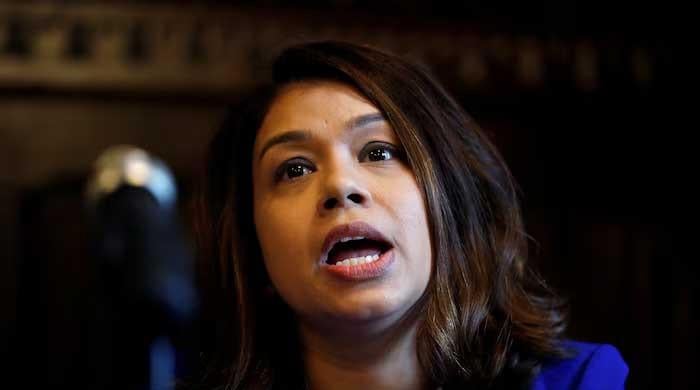
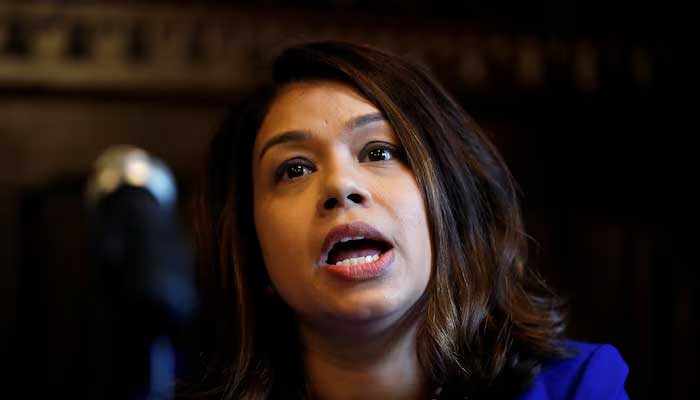
- Ex-Bangladesh PM Sheikh Hasina, sister Rehana also sentenced.
- Case relates to illegal allocation of a plot of land: local media.
- Prosecutors highlight political influence, collusion abuse of power.
DHAKA: A Bangladesh court sentenced British parliamentarian and former minister Tulip Siddiq to two years in jail in a corruption case involving the alleged illegal allocation of a plot of land, local media reported.
The verdict was delivered in absentia as Siddiq, her aunt and former Bangladesh Prime Minister Sheikh Hasina, and Hasina’s sister Sheikh Rehana — all co-accused in the case — were not present in court.
Hasina was sentenced to five years in jail and Rehana to seven, the local media reports said.
Hasina, who fled to neighbouring India in August 2024 at the height of an uprising against her government, was sentenced to death last month over her government’s violent crackdown on demonstrators during the protests.
Last week, she was handed a combined 21-year prison sentence in other corruption cases.
Prosecutors said that the land was unlawfully allocated through political influence and collusion with senior officials, accusing the three powerful defendants of abusing their authority to secure the plot, measuring roughly 13,610 square feet, during Hasina’s tenure as prime minister.
Most of the 17 accused were absent when the judgement was pronounced.
Siddiq, who resigned in January as the UK’s minister responsible for financial services and anti-corruption efforts following scrutiny over her financial ties to Hasina, has previously dismissed the allegations as a “politically motivated smear”.
Britain does not currently have an extradition treaty with Bangladesh.
-

 Sports1 week ago
Sports1 week agoWATCH: Ronaldo scores spectacular bicycle kick
-

 Entertainment1 week ago
Entertainment1 week agoWelcome to Derry’ episode 5 delivers shocking twist
-

 Politics1 week ago
Politics1 week agoWashington and Kyiv Stress Any Peace Deal Must Fully Respect Ukraine’s Sovereignty
-

 Business1 week ago
Business1 week agoKey economic data and trends that will shape Rachel Reeves’ Budget
-
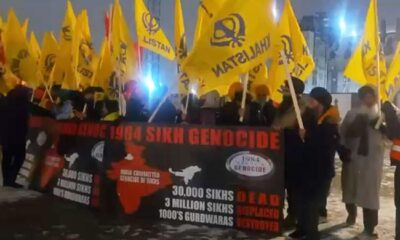
 Politics1 week ago
Politics1 week ago53,000 Sikhs vote in Ottawa Khalistan Referendum amid Carney-Modi trade talks scrutiny
-

 Tech6 days ago
Tech6 days agoWake Up—the Best Black Friday Mattress Sales Are Here
-

 Fashion1 week ago
Fashion1 week agoCanada’s Lululemon unveils team Canada kit for Milano Cortina 2026
-

 Tech1 day ago
Tech1 day agoGet Your Steps In From Your Home Office With This Walking Pad—On Sale This Week






